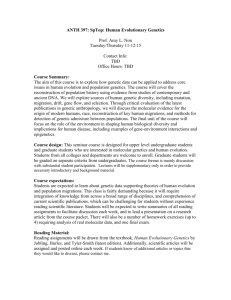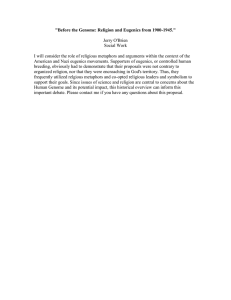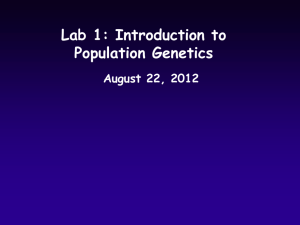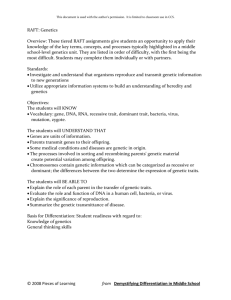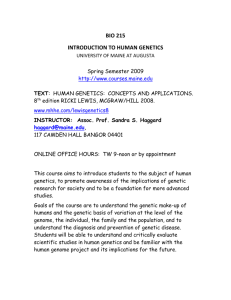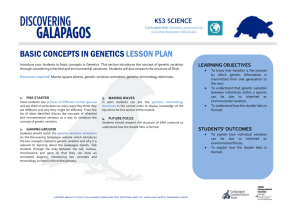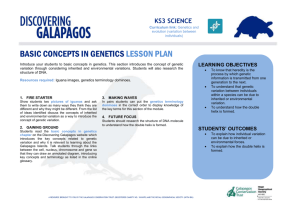Génétique et Culture: Genetic Science and French Culture
advertisement
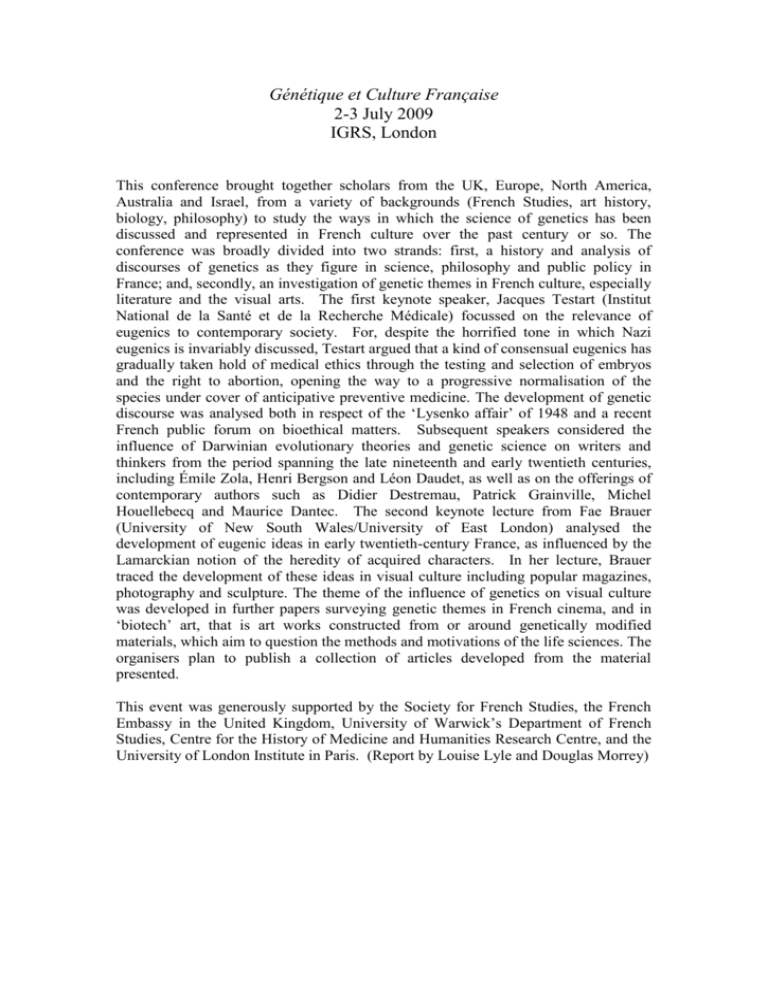
Génétique et Culture Française 2-3 July 2009 IGRS, London This conference brought together scholars from the UK, Europe, North America, Australia and Israel, from a variety of backgrounds (French Studies, art history, biology, philosophy) to study the ways in which the science of genetics has been discussed and represented in French culture over the past century or so. The conference was broadly divided into two strands: first, a history and analysis of discourses of genetics as they figure in science, philosophy and public policy in France; and, secondly, an investigation of genetic themes in French culture, especially literature and the visual arts. The first keynote speaker, Jacques Testart (Institut National de la Santé et de la Recherche Médicale) focussed on the relevance of eugenics to contemporary society. For, despite the horrified tone in which Nazi eugenics is invariably discussed, Testart argued that a kind of consensual eugenics has gradually taken hold of medical ethics through the testing and selection of embryos and the right to abortion, opening the way to a progressive normalisation of the species under cover of anticipative preventive medicine. The development of genetic discourse was analysed both in respect of the ‘Lysenko affair’ of 1948 and a recent French public forum on bioethical matters. Subsequent speakers considered the influence of Darwinian evolutionary theories and genetic science on writers and thinkers from the period spanning the late nineteenth and early twentieth centuries, including Émile Zola, Henri Bergson and Léon Daudet, as well as on the offerings of contemporary authors such as Didier Destremau, Patrick Grainville, Michel Houellebecq and Maurice Dantec. The second keynote lecture from Fae Brauer (University of New South Wales/University of East London) analysed the development of eugenic ideas in early twentieth-century France, as influenced by the Lamarckian notion of the heredity of acquired characters. In her lecture, Brauer traced the development of these ideas in visual culture including popular magazines, photography and sculpture. The theme of the influence of genetics on visual culture was developed in further papers surveying genetic themes in French cinema, and in ‘biotech’ art, that is art works constructed from or around genetically modified materials, which aim to question the methods and motivations of the life sciences. The organisers plan to publish a collection of articles developed from the material presented. This event was generously supported by the Society for French Studies, the French Embassy in the United Kingdom, University of Warwick’s Department of French Studies, Centre for the History of Medicine and Humanities Research Centre, and the University of London Institute in Paris. (Report by Louise Lyle and Douglas Morrey)
